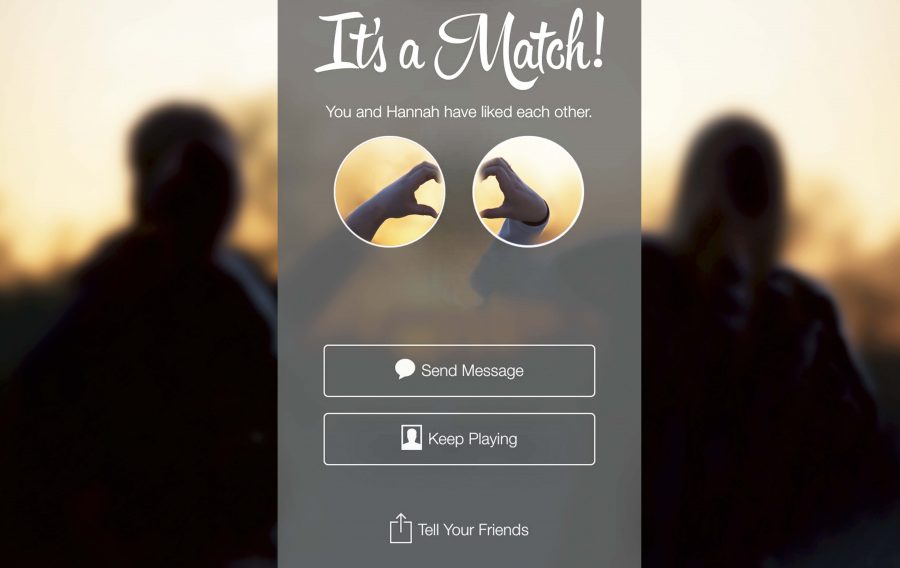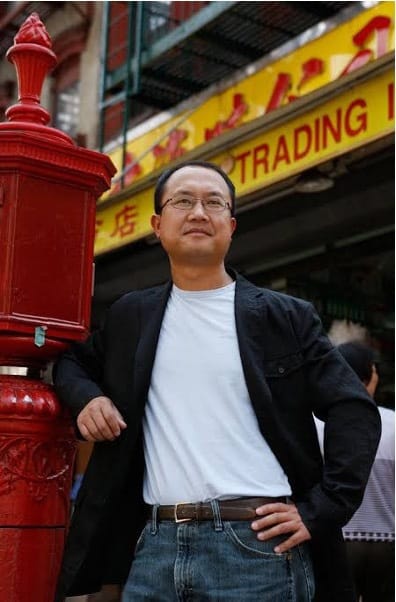 Tess Severin, a University of Alabama sophomore from Illinois majoring in finance, is an active member of Alpha Kappa Psi. Rhys Butler, her boyfriend, is a junior studying telecommunication and film who speaks with a Southern accent. The two met having no mutual friends on Facebook or similar backgrounds, and yet they’re going on their fourth month of dating.
Tess Severin, a University of Alabama sophomore from Illinois majoring in finance, is an active member of Alpha Kappa Psi. Rhys Butler, her boyfriend, is a junior studying telecommunication and film who speaks with a Southern accent. The two met having no mutual friends on Facebook or similar backgrounds, and yet they’re going on their fourth month of dating.
Severin and Butler met officially on Tinder, a relationship app that matches information from one’s Facebook profile with GPS so people can find others of the same age within a certain mile radius. After seeing the profile and profile picture of a user in the area, the viewer can swipe left to see other pictures or right to “like” the profile. If both parties swipe right, the two are matched and can start messaging each other.
“It’s like an ego-booster, kind of. Plus, it’s fun,” Butler said. “You get to talk to random people, and random people talk to you. I mean, I just had it cause everyone else had it, too. I originally wasn’t planning on meeting up with anyone in real life.”
After having seen each other in Rounders Bar one night, Severin and Butler matched on Tinder and began talking. After about a week, they met at Starbucks, both nervous and unsure what to expect, they said, and both attesting to having some “‘Catfish’ worries,” referencing the MTV show.
“It’s a little strange,” Severin said. “I didn’t know what he looked like, and I was kind of worried he wouldn’t look like his pictures, and then I wouldn’t want to be there anymore.”
The main benefit of an app like Tinder is its immediacy and lack of pressure associated with walking up to someone in a bar setting. Christopher Lynn, a biological anthropologist who teaches an anthropology of sex course at the University, said he predicts apps like Tinder, and its LGBTQ equivalent Grindr, will only multiply and become more advanced.
“Both dating apps and online dating have the advantage of not seeing the people you’re interacting with, which gives people, I think, the opportunity to both be bolder and more manipulative in ways they might be reticent to do face-to-face, for better and worse,” Lynn said.
According to a March 13 Tech Crunch article, in January 2013, there were 1 million matches on Tinder, and by December 2013 there were at least 500 million. In March 2014, it announced 1 billion matches.
Despite its recent uptick, Tinder continues to carry the stigma of an app used solely for hook-ups. Severin and Butler said they often try to come up with different versions of how they met to avoid telling people they met online.
“Tinder has a name to it, like, ‘You guys are dating because you hooked up,’ and that’s not true,” Butler said.
Lynn said positive or not, Tinder opens up a venue for interactions on a convenient and massive scale, connecting individuals with similar wants. For those who want to hook up, Tinder feeds that drive by letting individuals meet outside of their friend groups so they can hook up once without running into their match again.
“It really hones in on that biological drive,” Lynn said. “That’s in a huge sense why folks are out there in bars, and it sort of cuts through the chaff who’s out here to actually pick someone up and who’s out here to hang out with their friends.”
Lynn said the app does have a dark side, in that it has the potential to lead to emotional wounds and aggressive behavior.
“The biggest downfall I found from looking online is how cruel people can be with that type of barrier between them and having an interaction with someone,” Lynn said. “It’s hurtful to people that have issues anyway, to see rejection of them advertised so descriptively or explicitly as opposed to not being talked to.”
Apps like Tinder are often labeled as stepping stones toward a world in which technology has too much of a hold over one’s social life.
“In the olden days, you didn’t have cellphones or social media to connect with people and had to actually talk to people and meet them, but nowadays, there’s this social thing where we just don’t know how to do that anymore,” Butler said.
Lynn said he views the technology of social media differently, in that he sees ways to connect as simply ways to connect, feeding markets of all kinds of individuals with a diverse set of needs.
“We’re diverse. We have lots of different people out there and have all this pressure on us growing up – I know, I felt it – to meet people,” Lynn said. “There are venues for meeting people, like bars and things like this. When people first started online dating, it was a bit tricky. People were ashamed of it, but the more venues for meeting other people that proliferate, the better. The more people there are, the more I find it difficult to find people, especially if you’ve moved like a college student. Thirty-thousand people is a lot of people to wade through.”







